Welcome to Everything Is Amazing, a newsletter about curiosity, attention and wonder that tries to make you feel about your day like this bird did (h/t Jodi):
Without further adieu: a chat with a bloke who knows all the right questions.
I first met Jonny Miller in a blizzard.
After years of talking by email (beginning when I worked at an online magazine that covered the startup he co-founded, Maptia), we decided to finally cross paths in Durham, in the dead of winter.
In normal circumstances, the view of Durham from the railway station is a superb argument for arriving by train. This time, it seemed to say, “stay seated, you soft fool, you wouldn’t survive ten minutes out there.” Through weather as savage as any I’ve seen in the north of England, I fought my way off the platform and down into the city centre, dodging flurries of stinging snow and falling tankles - that’s Durham-speak for “icicles” - and found the cafe we’d arranged to meet at.
Jonny was sat by a window, staring out of it with a bemused expression (I don’t think he’d seen weather like it either). As I squinted at him through snow-spattered spectacles, I said to myself, yep, he’s pretty much as I imagined. Then he stood up. I hadn’t realised he was sat on a bar stool. Jonny Miller is an oak of a man, and I felt like Bilbo greeting Gandalf.
Since he’s also one of the most thoughtful and curious people I’ve ever met, the next few hours raced by. It’s a sign of a good conversation when you walk away feeling like you barely got started - and that’s the pattern of every chat I’ve had with Jonny since then.
In the UK startup world, he’s worked as an emotional resilience coach for company founders and executives (here’s Jonny talking about his research into burnout), and is a former facilitator of Escape The City’s startup accelerator. He currently teaches breathwork with writer Conni Biesalski, runs a podcast where he interviews ridiculously interesting people, publishes this newsletter every time his brain gets too full with all the fascinating things he’s learned, and also seems to read all the books. All of them.
As a hugely well-read person, he’s always been great at recommending other people’s advice when I’m struggling with something: for example, it was Jonny who suggested I try Julia Cameron’s “morning pages” technique for getting myself writing again, a technique much loved by Elizabeth Gilbert. (Worked a treat for me.)
Jonny is also to blame for Everything Is Amazing. He described me publicly as “one of the most curious people I know,” at a time when I felt the exactly opposite due to creative exhaustion - and it made me think, “yeah, I’m not, but I want to be. OK. So how do I do it?” I began reading about the mechanics of curiosity - and here we are.
For this reason, if I’ve ever written something in this newsletter that you find insulting, tedious or just plain rubbish, please send your complaint to Jonny at his website. He’ll happily explain what the hell I was playing at.
When I spoke to Jonny over Zoom, he was getting ready to move to Bali with his wife, so he appeared against an impressive backdrop of boxes and suitcases. Thanks for making the time, sir!
(This interview was edited for clarity.)
Mike: So - you’re a busy man! I see you on Twitter, I see you online, and you are interested in everything. You are just, How can I bring this into what I do? So - how do you? How do you stop yourself being distracted by all the shiny objects of social media? For example, I'm presuming your wife brings to you a whole bunch of new interesting things to learn about through her own work. How do you focus?
Jonny: I guess that I'm quite - or I try to be - intentional about curating the information feeds that come at me. And so in practical terms, that looks like limiting time I spend on Twitter, trying not to check any kind of social media in the mornings, saving that time for some form of output, whether it's writing - or reading books. I've been trying to get back into just reading more books recently. That feels like where the real depth and the juicy ideas come from, and less from the 140- or 280-character soundbites that we get online. So for me - yes, I still like to snack on Twitter every once in a while. And it's definitely fun to spend time there, with a great community. But I've been trying to be more intentional about reading and listening to more books.
Mike: Right. And books help you not just sit with a question, as you would say, but sit with an argument, a sustained viewpoint on a certain topic. Including fiction, the classic way of presenting ideas in a way which really lands, without many people being aware they’re being influenced.
Jonny: That makes me think of Aldous Huxley's book The Island, which is fiction, but also his way of presenting his philosophies on the world. The trickster-vehicle fiction story.
Mike: Yeah. And fiction for a long time was seen as an acceptable way of presenting a political treatise. Like how [former British Prime Minister] Benjamin Disraeli wrote fiction. Yet I've seen writers of all kinds get in trouble writing about politics, a pushback, you know, get back in your lane, we read you for travel or whatever, we don't read you for politics. Yet curiosity is the “get out of your lane” skill…
Jonny: That's so true. And - having a podcast, having an outlet to share things - if there's an author whose work I'm interested in recently, I've just been fortunate enough to email some people and they're like, yeah, sure, let's have a conversation. And that gives me like a week to go really deeply into their work, and then ask the questions that I'm interested in. It’s a great forcing function to go into their work and try and extract the nuggets. What are the things that I'm really interested in? So I think that's been really helpful as well.
Mike: Your interviews have been terrific. They always make me think you've spent the last week doing a lot of reading. And you just spoke to Bill Plotkin?
Jonny: Yeah. And the last one was really interesting, with Jamie Wheal yesterday. I can't even tell you, I was picking up my brain off of the carpet.
Mike: What are you reading right now?
Jonny: Currently an upcoming book called Enlightened Sleep by a guy called Rod Stryker, a book from the yoga world but with a lot of evidence-based scientific research which is really interesting. And I'm still re-reading Jamie Wheal’s book Recapture The Rapture, and integrating the conversation that we had, because to me it feels like a really important piece of work. And there's another book that I have, quite dense but really interesting, called Education In A Time Between Worlds by Zachary Stein - he’s arguing how to reinvent the entire education system, and how the education system is a foundational building block for culture and society. And if we want to make it through the next century, we're going to have to completely rethink it. He has a chapter called “social miracles,” which made me feel hopeful for humanity for the first time in a while.
Mike: Have you heard of Kim Stanley Robinson, the science fiction author? His latest, The Ministry Of The Future, is a work of fiction, but it's also a major work of essentially how we get from here to a survivable climate-changed future. He generally writes science fiction of the complex future-history kind, filled with fascinating ideas, but it’s compellingly hopeful, in a realistically messy way. A scientific view of us as a problem-solving species. I feel happier about the world after reading his work.
Jonny: I will definitely investigate for the long flights ahead of me this week.
Mike: So in terms of your focus on curiosity, it sounds like you’re most interested in what’s usually labelled the third type, empathic curiosity, which is that realisation - you know, what's the word where you discover other people have as rich an internal life as you are? [It’s this one.] And you suddenly realise it, and it's Oh my god, maybe I'm not the ‘hero’ of this story. So - how do you find that the consulting work you're doing helps you with the empathic curiosity about other people? And what kind of revelations have you had recently out of your work? Where you've realised Oh, those people are struggling with this, and nobody's talking about it, and I need to get involved?
Jonny: That's a really beautiful question. What first comes to mind for me is - I think we need to apply that empathic curiosity to our own lived experience. And by that I mean, really getting curious about how we're really feeling, as opposed to just living in our intellectualised stories of what is going on. In my experience, it's only by fully feeling whatever is going on for ourselves, the emotional sensations in the body - we have to process these and live through them. And that sharpens this sword for our own empathic capacity for other people. Once we've felt and truly understood our own anger, our own frustration, or grief, it gives us a greater capacity to notice it and to empathise with other people. And if we can accept it in ourselves, then when other people express those so-called “negative emotions,” then we can sit with them to form the right kind of open-hearted place, without judging them. And that allows for the real kind of healing to take place.
And then the other thing that comes to mind is also - I suppose storytelling, for crossing what's what very often called the the empathy gap, both through geography and free time. This is one of the biggest challenges for humanity right now: how can we really put ourselves in the shoes of future generations, say, two generations from now, or with people on the other side of the world in completely different circumstances? The most efficient vehicle for that, I think, is great storytelling that tries to feel what they might feel.
There's a really powerful question that my wife and I have been using sometimes, which is like, What is this like for you? What’s your experience of this moment, this sensation? And then you sit with that, try to stop yourself needing to have an answer right away, but just patiently allowing the question to unfold and work its magic on you. I love that.
Mike: I've always loved the phrase “sitting with a question,” which I think I first learned from you. That emphasis on inserting the time that usually we don't give ourselves, to really think it through.
[Related: see Sophie Stephenson’s advice on carving out thinking-time here.]
It's like we don't ask ourselves, Do I need to answer this now? Is it worth investing more time to get a better answer? I realised that from listening to your work as well, because you're very good at staying with the question when you're interviewing people. But there’s the constant pressure, especially online, to form an opinion, so you can be heard. You're a person who does a lot of his work online, and a lot of people listen to you on social media. Do you feel there's a tension there?
Jonny: I think there certainly can be. For me, it's more fun to unpack the implicit assumptions and premises made by someone asserting an opinion than it is to make a counter-opinion. Which sometimes can be unhelpful, because there are times where we need to plant a flag in the ground and say, This is what I believe, this is what I stand for. There is a time and a place for that. And my tendency is to stray away from it. But I think my approach is more than to use social media for asking questions to break or tease apart these kinds of very firm opinions.
Mike: Right. Sometimes I see people say they're doing that, but they're using the process of being the devil's advocate, which is not really exploring, it's just choosing the opposite. And sometimes that's the opposite of thinking.
Jonny: Yeah. I think I learned a lot from Buster Benson on this topic - he's written a book called Why Are We Yelling? The Art Of Productive Disagreement. It's a fantastic book. And I think - that in order to make genuine progress in the divided world we live in, we have to show up with genuine curiosity for how the other person came to this conclusion. What is their truth here? What’s underlying this opinion that they're asserting? And I think almost always, there is something new to learn there.
I've had some interesting conversations with believers: how that set of beliefs give them a sense of meaning and purpose, and help justify their beliefs that the big companies and government don't have their best interests at heart. And you can see how these beliefs are holding up their sense of identity about who they are, and giving them a sense of purpose and mission that they haven't felt previously. These truths underneath the surface of the seemingly outrageous opinions that we see. And so it is interesting to ask, How did this person get to hold this particular perspective? It’s reverse-engineering detective work.
Mike: But that's a slow process. And I guess that, again, it goes back to education, to teaching critical thinking, and maybe teaching, I’ve only been thinking about this for an hour, so why am I forming an opinion here?
Jonny: Yeah.
Mike: So - what are you most curious about in terms of things that are absolutely outside your ballpark at the moment, where you're just trying to process whether they're a distraction or something that you should spend time on?
Jonny: I've recently been listening to some of the stories told by Wade Davis, an explorer at National Geographic, a very well known anthropologist and ethnobotanist. I’ve listened to him talk about some of his earlier adventures, discovering psychedelic substances in South America, and the adventures he went on to discover the origins of these plants and the ceremonial context in which they used.
I'm interested in the potential for both these kinds of psychedelic substances, these entheogens, like Michael Pollan talks about, and breathwork as well, which is something that I've been doing a deep dive into both in terms of, like, how do we have greater control over our nervous systems?How do we process trauma? And what is the overlap between them? There is a lot of just-emerging scientific research and a really trendy interest in these things.
So I’m exploring these spaces, and also how indigenous cultures throughout the millennia have used these sacraments in a ceremonial context. And the perspective that they have on the world. Davis talks a lot about this - it's kind of one of his core theses: when we lose a indigenous tribal culture, we lose their perspective on the world. We in the West have the rationalist, materialist perspective on what the world is, but his point is that there are thousands of different ways to view this human experience. It's important to at least appreciate and consider these other perspectives on what might be going on in these meat-suits we wear.
Mike: Absolutely. One of the great revelations of studying archaeology for me was the point I realised, really for the first time, that looking at people who lived thousands of years ago - it’s easy to think, Well, they were in a kind of primal state, not like us nowadays - but all human history is essentially about people who are just as smart in any age, just using different mental models and different technologies. “Sophisticated” is this pedestal that we put ourselves on. And when we look backwards - even the word “backwards” has all this baggage on it now! - we don't realise that people's inner lives back then were just as complicated and intricate as ours now.
Jonny: Yeah, I actually love that. And maybe to kind of rephrase what I just shared, I think part of it is appreciating the different technologies that a lot of these cultures have. They have psychotechnologies, they understand the technologies of plants and Amazonian medicines that we're only just beginning to understand. And if you look at the Tibetans, for example, historically they have an incredible understanding and vocabulary of human consciousness, and the different stages of conscious experience that can be accessed through meditation and so on, that we just really have very little appreciation for in the West. But just because we're now able to create electricity and send rockets into space, we assume that we are somehow far more advanced than these other ways of being.
Mike: And from a historical record, that does seem a tendency for humanity in any age, to think they're the enlightened ones.
Jonny: That they're the centre of the universe. Absolutely.
Mike: But maybe that’s a kind of prejudice against curiosity itself - this reducing into, We are the height of everything worth learning, so what's the point in learning other things?
Jonny: Yep.
Mike: So, as usual with my conversations with you, I now have a new load of books I have to bloody well go and read. That happens every time. It’s a problem.
Jonny: I think you’d definitely appreciate Recapture The Rapture by Jamie Wheal, if I had to stick to one recommendation.
Mike: You mentioned something I'm very interested in at the moment, which is rereading. When I think about what rereading gives me, it's the “sitting with the question” thing again. You reread to sit with somebody else's book for a longer time - and sometimes rereading at a different period of your life is sitting with their ideas in a different context.
Jonny: Yeah. When you’re a different person. You're probably not the same person that you were when you first read the book, so the same questions will resonate differently. The best example for me is reading someone like Alan Watts, where the first time I read it, I was like, I don’t get this at all. None of it landed, But I've read The Wisdom Of Insecurity four or five times now, and each time there are new layers to me. And to give another example, Kelly is rereading the Harry Potter series right now. And so reading it now compared to when she was in her teenage years, I think it'll be a very different experience as well.
Mike: I had that experience with Robert Persig’s Zen And The Art Of Motorcycle Maintenance, which I fought my way through in my mid-teens, and I didn't know what the hell it was about. And then about the age of 30 I reread it again, and it all started clicking. So - my challenge to you is: was there a book that either you really loved or really hated at a very early age? Which you haven't read since then?
Jonny: Hmm. I imagine it will probably be a fiction book of some sort. That's mostly what I read when I was young. Potentially, the Northern Lights series by Phillip Pullman. The other thing is- maybe the Just So Stories by Rudyard Kipling.
Mike: Wonderful. Thanks, Jonny, this was an absolute pleasure as always.
Sign up for more Everything Is Amazing updates below:
Images: Jonny Miller, Rebe Pascual, Revieshan, Mike Sowden.

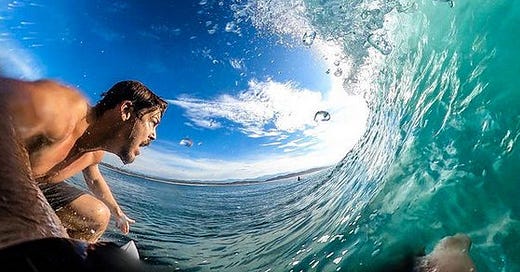





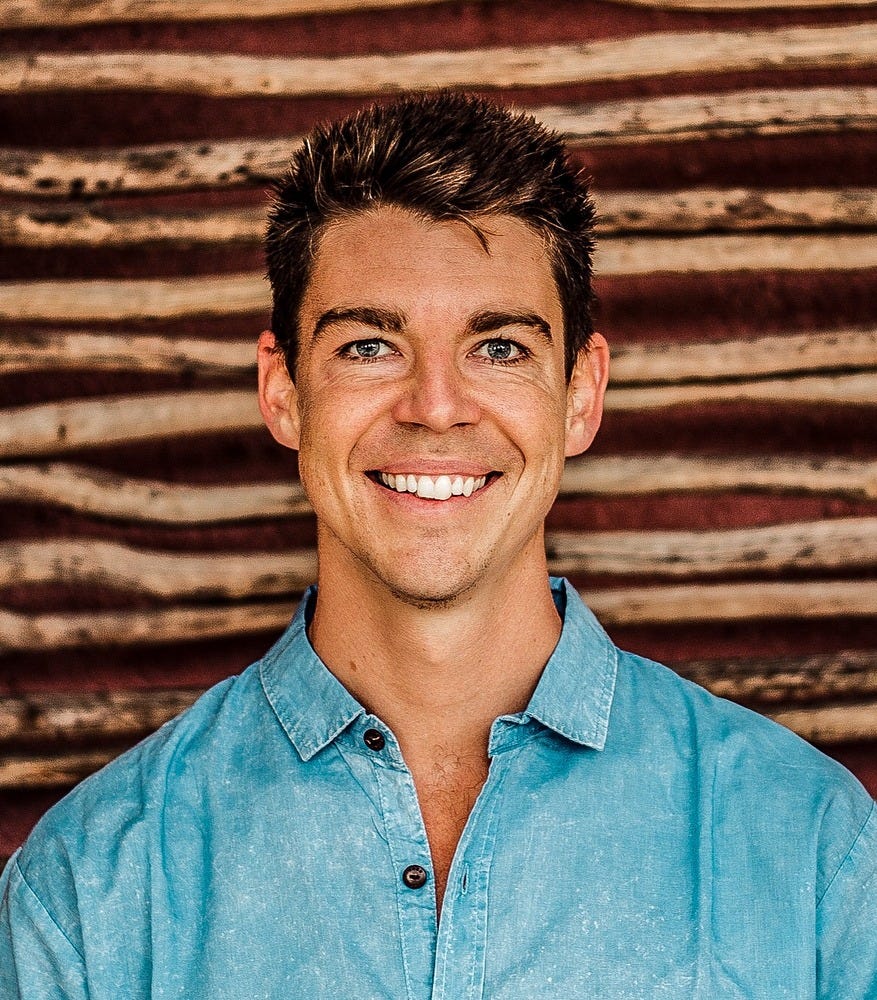
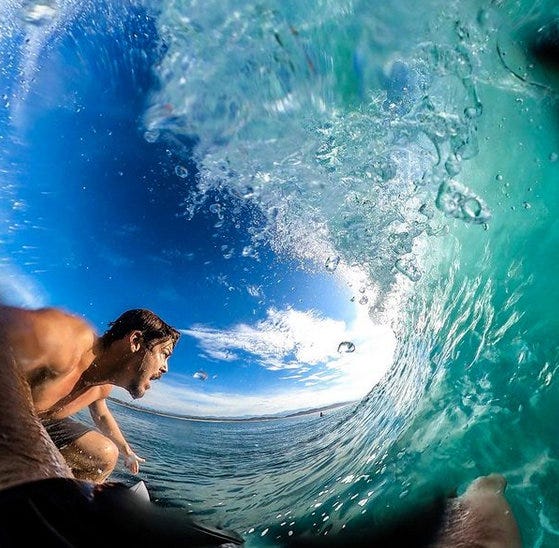
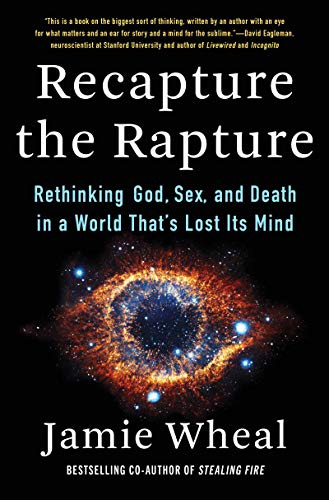
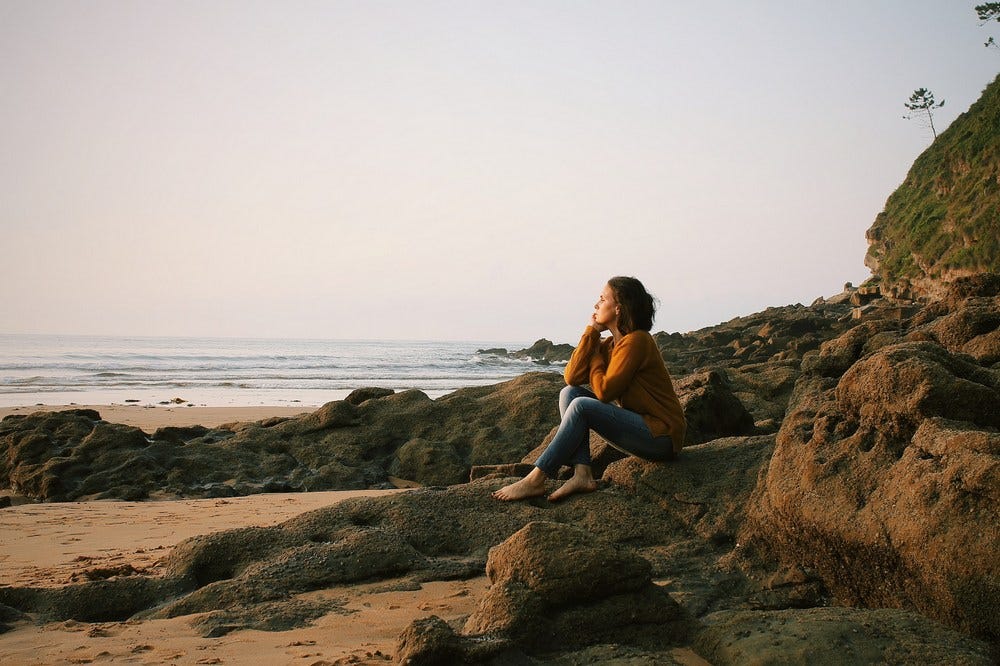
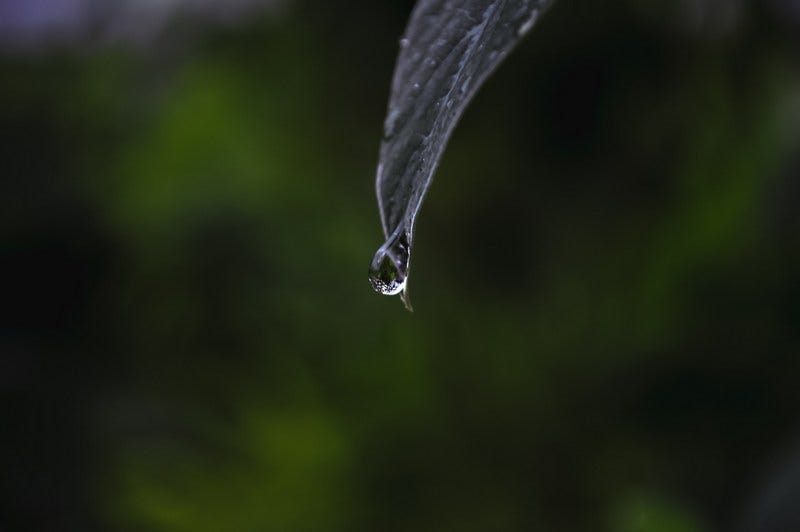
Thank you for “tankles,” a gem of a word. And sharing this conversation.